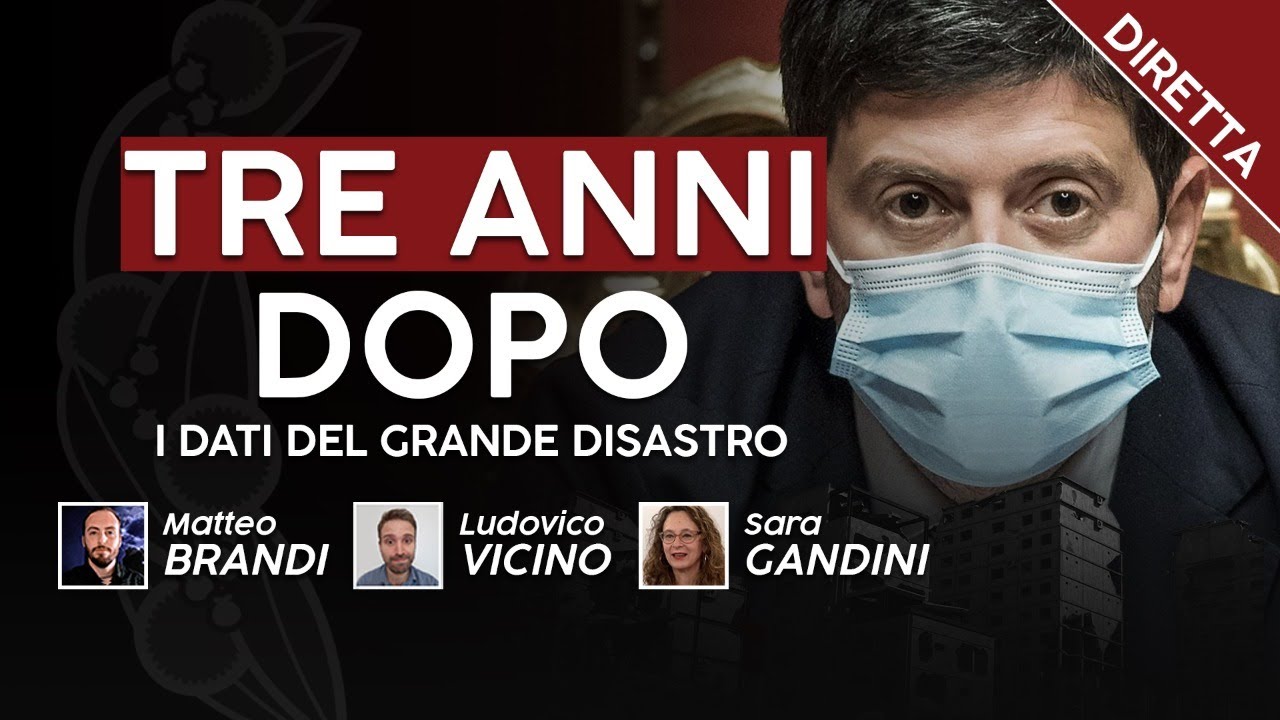Tre Anni Dopo - I Dati Del Disastro
Unleash Your Creative Genius with MuseMind: Your AI-Powered Content Creation Copilot. Try now! 🚀
In the midst of the COVID-19 pandemic, our world was thrust into a crisis of epic proportions. The discussions and decisions that followed revolved around the lack of alternatives, the imposition of lockdowns, and the impact on people of all ages, particularly the young ones. Let's dive into this multifaceted issue, exploring the intricacies of pandemic management, socio-economic factors, and the consequences of lockdown measures.
Challenging the Conventional Wisdom
The pandemic's early days saw rapid decisions made, driven by a perception of high mortality rates. But here's where things get interesting: international serological research unveiled a broader virus spread with a lower fatality rate. The question arises – was the initial response justified?
Renowned epidemiologist John Ioannidis dared to challenge the lockdown measures, a move that attracted not just criticism but even death threats against scientists with the audacity to voice unconventional opinions. In the wake of these measures, we observed an alarming spike in overall mortality rates, especially among the young. The culprits? Neglected health conditions and the emergence of pressing social problems.
Schools Closed, but at What Cost?
The closure of schools, touted as a safety measure, inadvertently put the elderly at risk while casting blame on the youth. This discussion emphasizes the vital need to factor in socio-economic dimensions when navigating pandemics and devising measures aimed at protecting society. It's not just about flattening the curve; it's about leveling the playing field in a world of inequalities.
The Economics of Pandemic Decision-Making
Perceptions of safety often shape political decisions, and it's challenging to trace economic repercussions directly back to these choices. A hidden external force exerts its influence, carving out a distinct political class. The last 30 years have witnessed a series of budget cuts to the healthcare sector, setting the stage for the challenges we faced during this pandemic.
What's intriguing is the adoption of pessimistic scenarios to sidestep potential criticism. A war-like narrative unfolded to address the pandemic, putting scientists who dared to defy the conformist pressure under intense scrutiny. The importance of open debate and the emotional struggles faced by experts resisting the dominant narrative come to light.
In the world of science, those who dared to adopt diverse positions faced their own unique challenges, pitting courage against conformity. In the grand scheme of things, the COVID-19 pandemic has illuminated the nuanced dynamics of decision-making in a crisis.
Lessons from Sweden: Treating Citizens Like Adults
Now, let's take a detour to Sweden, a nation that made headlines for its unconventional approach. Instead of treating its citizens like children to be sheltered, Sweden trusted them to act responsibly. The Swedish strategy was bold, focusing on the long-term consequences of the measures implemented, unlike the modern political tendency to treat the populace as easily frightened children.
This brings us to an important question: Is it right to instill fear to achieve compliance, or can we trust people to make rational decisions? Sweden's path prompts us to ponder the complexity of our global situation and sparks a comparative analysis of different nations' responses.
In a world that seems ever more uncertain, the pandemic exposed the interplay of science, politics, economics, and human behavior. The great minds from history, the likes of Einstein and Galileo, have taught us that it's the outliers, the unconventional thinkers, who drive progress. So, as we grapple with the challenges of today's world, let us embrace both courage and conformity, for it is at this intersection that we'll find the path to a brighter future.
As we navigate the uncharted waters of the COVID-19 pandemic, it becomes evident that striking a balance between bold, innovative thinking and adherence to conventional wisdom is paramount. Let us learn from the mistakes and successes of the past and chart a course that is not only safe but also enriching, empowering us all to thrive in the face of adversity.

Related Recaps
- Lecture 1: Introduction to Power and Politics in Today’s World
- Rep. Hakeem Jeffries on President Biden's new taxes on high-income Americans
- 🔴BBB23 AO VIVO AGORA: BLACK MUDA PARA O DESERTO; BONINHO DESISTE DE MUDANÇA DRÁSTICA NO JOGO + FESTA
- NRG Sweet be giving TSM a free win after toying with them in ALGS Scrims.. 😂
- THẦN SỦNG TIẾN HÓA TẬP 190 | POKEMON | TRUYỆN THÀNH PHIM | TRUYỆN THUYẾT MINH | LỆ PHI VŨ